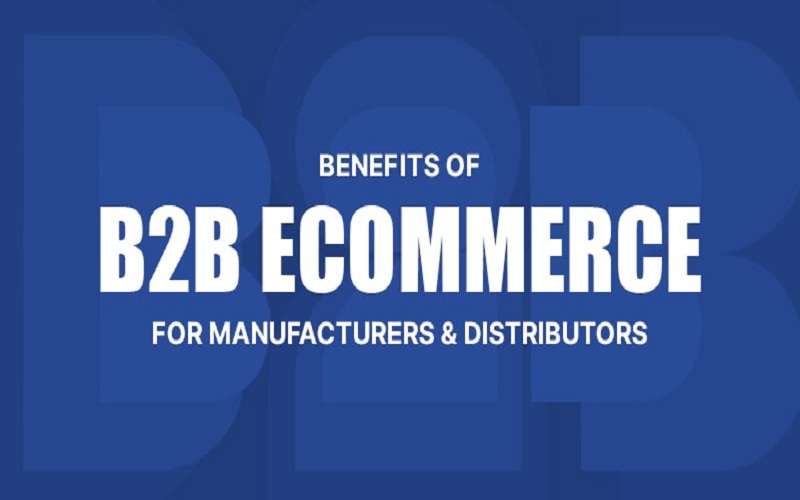Establishing a company is a huge undertaking. The B2B model appeals to founders as it has associated economics of high-volume transactions. Revenue and market share are further increased with the integration of inventory management system software. Compared to B2B product companies, which are growing at rates of 8.6% and 15.6%, respectively, the company’s entire marketing costs are increasing to 9.8% of revenues. Many existing and aspiring firms are interested in learning more about the B2B wholesale sector because it is a competitive industry. Thus, we shall examine the definition, salient features, and difficulties associated with B2B wholesale in this article.
An Overview of the Wholesale B2B Market
B2B refers to a business-to-business model of selling products and services. Producers sell their products to wholesalers who then resell them to other retailers. There are two categories for the B2B market: B2B retail and B2B wholesale. The manufacturer, distributor, and retailer are the main partners in any B2B model. B2B wholesalers advertise and sell the products to other businesses. The products might be used by the buying companies in their operations or profitably resold. B2B wholesale transactions are frequent and intricate due to the large order volumes and long-term contracts.
Since wholesalers can now help producers and retailers all around the world with technology advancements, B2B wholesale removes the requirement for an intermediary. The products are easy to carry and distribute when purchasing in bulk, and these transactions efficiently transfer large quantities of commodities at once and have high order values. As a result, every B2B wholesale transaction has numerous benefits for both suppliers and buyers.
Advantages of a B2B Wholesale Network
The predicted value of the B2B wholesale e-commerce market in 2020 was 6.64 trillion USD. This business model’s numerous advantages attract the main players. Some of the main benefits of the B2B wholesale model are as follows:
- Increase order volume and average order value (AOV): B2B wholesale has a greater average order value (AOV) than other company models. Therefore, the value of the custom-life time increases with long-term contract structures and large order volumes.
- Boost brand awareness: There is no need for middlemen because B2B wholesalers can offer their goods to retailers in large volumes. It’s easy to expand your business when B2B wholesalers unintentionally build brand recognition.
- Keep a set profit margin: Each B2B wholesaler is entitled to a predetermined profit margin, which ranges from 3 to 10%. Merchants purchase a predetermined quantity of goods at a profit, offering great opportunity for growth.
- Boost supply control: B2B wholesalers have complete control over changes in the supply and demand from manufacturers and retailers. Retailers face a challenge when making large purchases when manufacturers want substantial funding. Better supply management by wholesalers effectively addresses these problems.
Significant Challenges for B2B Wholesalers
Since nothing is absolute—as we all know—B2B wholesale has some restrictions, just like other platforms. The actual digital portion of the wholesale platform is used by about 25% of B2B companies, but B2B inventory management system software has many other factors to take into account. Thus, among the major obstacles that B2B business platforms must overcome are:
- Technology Transformation: Manufacturers and retailers are attempting to cut out middlemen from the supply chain. As a result, any B2B wholesaler must offer reasonable costs while staying current with technological advancements. Without technology, B2B wholesale might not be able to benefit from the advantages of the new market.
- Global Competition: It is hard to compete internationally, especially for B2B wholesale businesses that have to maintain a balance between their pricing margins. The slim profit margins of these businesses are harmed by the heightened pressure from global competition. As a result, businesses need to continue managing costs even as they recover from the effects of increased global competition.
- Retail Consolidation: Supermarkets, office supply stores, and merchants of DIY and home gadgets have been hard-pressed to find B2B suppliers. As a result, any B2B wholesale company that focuses on niche markets and caters to customers needs to take into account this retail consolidation.
Top eCommerce Sites for B2B Distributors
The B2B eCommerce market is predicted to increase at an annual pace of 18.7% between 2021 and 2028 as the B2B wholesale industry looks to automation and digital technologies to close the gaps in revenue and sales that now exist. Thus, we will talk about the top eCommerce platforms here that are designed to meet the needs of the B2B wholesale business model alone.
OroCommerce
For large and midsize businesses, OroCommerce is an open-source multichannel inventory management system solution. Users can create multichannel online storefronts with it. Key components include content management, account management, rule-based workflows, and user authentication. It gives you the ability to run several websites, which lets retailers operate globally in multiple languages and accept payments in multiple currencies.
Shopify
The IT behemoth Shopify, which has created numerous technical solutions, offers Shopify Plus to any major online business. Because of this, B2B wholesale companies usually use the extremely scalable and trustworthy Shopify Plus e-commerce platform.
BigCommerce
BigCommerce is a comprehensive eCommerce platform suitable for both small and large businesses. It offers you a wide range of reporting options, personalisation without the need for technical expertise, and affordable rates.
While the platforms mentioned above offer robust features, independent software providers (ISPs) cater specifically to the needs of B2B eCommerce. One such solution is OrderCircle.
Conclusion
By now, you should have a good idea of the benefits and features of the B2B wholesale multilanguage eCommerce management store. It all comes down to conducting business with other organizations after being aware of their requirements and difficulties. Although the B2B wholesale industry is still relatively small in terms of penetration, there is a good chance that it will grow in the future. Using a top B2B order management system to improve digital technologies could alter everything for your company. Choosing the ideal inventory management systems solution may be your company’s main engine.















+ There are no comments
Add yours